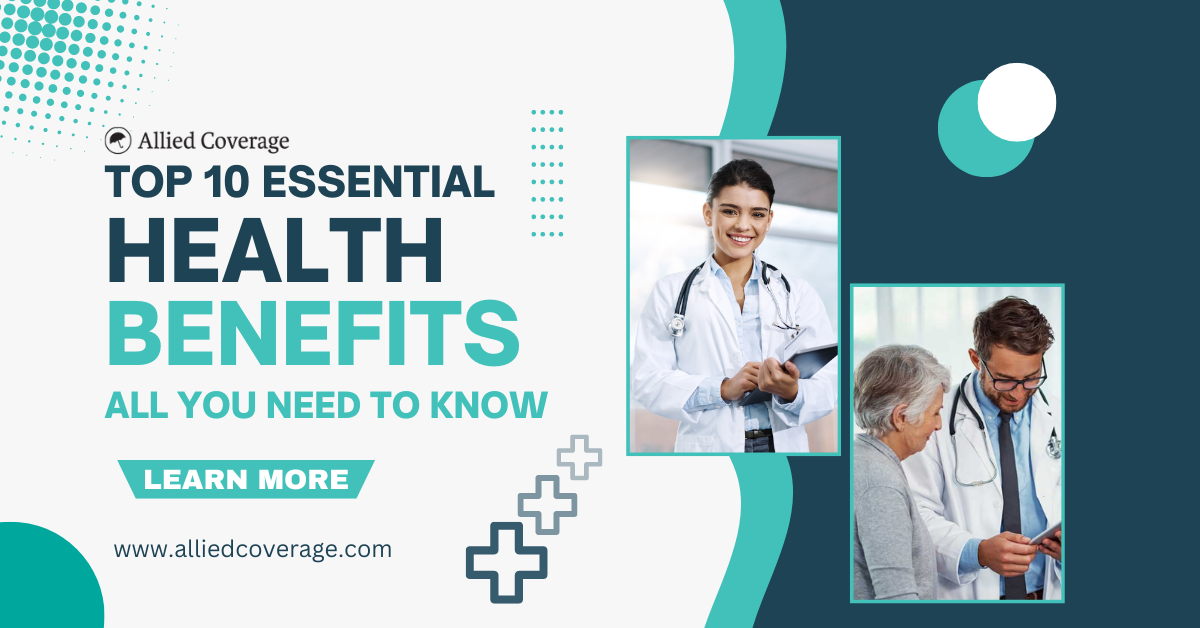Understanding essential health benefits is crucial for maintaining well-being and accessing comprehensive healthcare. This guide highlights the top 10 essential health benefits, explaining their importance and what they typically cover.
1. Ambulatory Patient Services
Ambulatory patient services, also known as outpatient care, include medical services that don’t require a hospital stay. These services are vital for managing chronic conditions, minor injuries, and illnesses through regular check-ups, consultations, and treatments.
2. Emergency Services
Emergency services provide immediate care for acute illnesses, injuries, or conditions that pose a serious threat to health. This includes emergency room visits, ambulance services, and urgent care, ensuring prompt treatment to prevent further complications.
3. Hospitalization
Hospitalization coverage includes services provided during an inpatient stay at a hospital. This encompasses surgeries, overnight stays, nursing care, medications, and tests, essential for treating severe health conditions requiring intensive medical attention.
4. Maternity and Newborn Care
Maternity and newborn care cover services for pregnancy, childbirth, and postnatal care. This includes prenatal visits, labor and delivery, and postnatal care for the mother and baby, ensuring the health and well-being of both during and after pregnancy.
5. Mental Health and Substance Use Disorder Services
This benefit covers mental health services, including counseling, therapy, and treatment for substance use disorders. Access to mental health care is critical for addressing conditions such as depression, anxiety, and addiction, promoting overall mental well-being.
6. Prescription Drugs
Coverage for prescription drugs ensures that individuals have access to necessary medications. This benefit includes a range of drugs, from antibiotics to manage infections to medications for chronic conditions like diabetes and hypertension, supporting ongoing health management.
7. Rehabilitative and Habilitative Services and Devices
Rehabilitative services help individuals recover from injuries or illnesses, while habilitative services assist those with developmental issues to gain new skills. This benefit includes physical therapy, occupational therapy, speech therapy, and medical devices like crutches and wheelchairs.
8. Laboratory Services
Laboratory services cover tests and screenings essential for diagnosing and managing health conditions. This includes blood tests, urinalysis, and other diagnostic procedures that provide critical information for effective treatment plans.
9. Preventive and Wellness Services and Chronic Disease Management
Preventive and wellness services focus on maintaining health and preventing illnesses through regular screenings, immunizations, and health check-ups. Chronic disease management includes ongoing care and support for conditions like diabetes, heart disease, and asthma, ensuring patients can manage their health effectively.
10. Pediatric Services
Pediatric services cover healthcare for children, including routine check-ups, immunizations, and dental and vision care. Ensuring comprehensive care for children supports their growth and development, laying a foundation for long-term health.
Conclusion
Understanding and utilizing these top 10 essential health benefits ensures comprehensive healthcare coverage, promoting overall well-being and effective management of health conditions. By being informed about these benefits, individuals can make better healthcare decisions and access the necessary services to maintain and improve their health.

